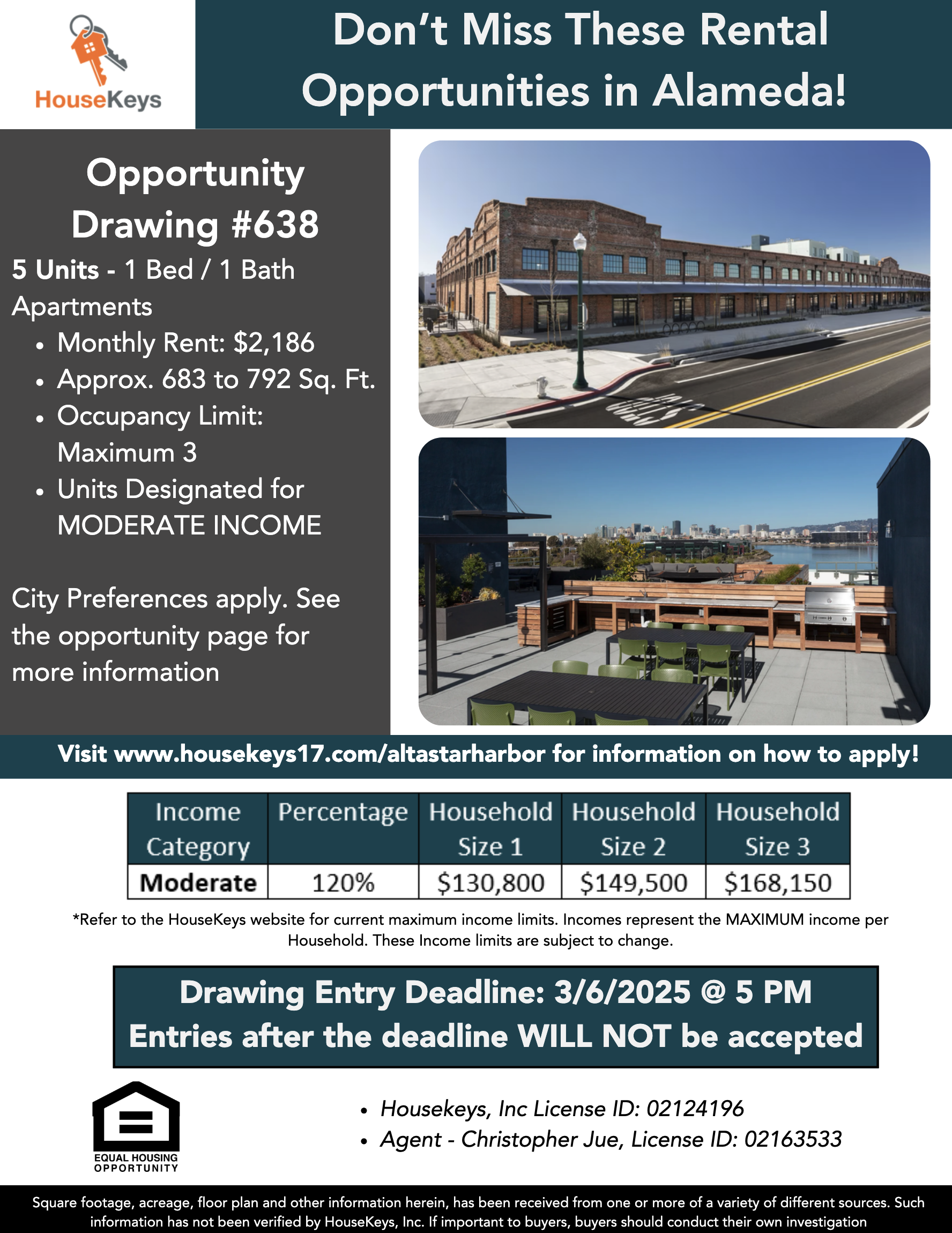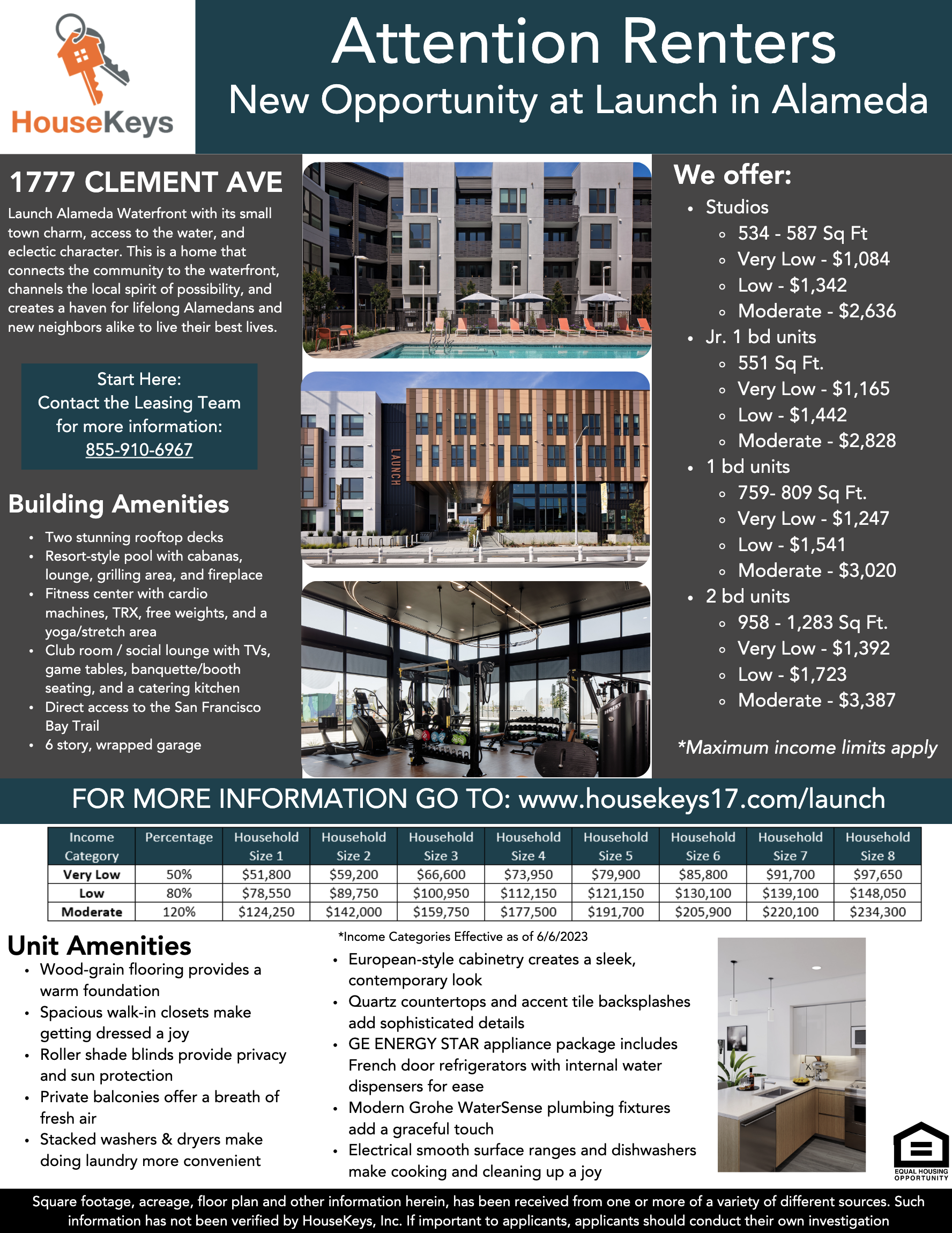At its next meeting, the Alameda Planning Board will be studying the city's "inclusionary zoning" requirements.
These are requirements in the Alameda Municipal Code that require almost all new developments of 5 or more housing units to set aside at least a certain percentage of those units to be "affordable." These units are offered to rent (in the case of apartments) or purchase (in the case of condos or townhouses) below market rate by those with incomes under preset thresholds of "very-low income" and "low income" and "moderate income." (More on what moderate income means later.)
"IZ" — as inclusionary zoning is sometimes abbreviated — is intended to both produce below-market-rate housing units (that are affordable to a more diverse population of renters/buyers) and to temper residential segregation by building those units in the same buildings or complexes as new market-rate units.
But, for what it's worth, none of the men who argue online about housing policy — and they're almost all men — like "IZ":
- From one perspective, below-market-rate housing should be funded by a robust public sector, not required of private-sector developers as the unfunded and haphazard after-thought of IZ. (These men gather under the banner of "social housing" and aspire to live in Vienna.)
- From another perspective, IZ merely raises the cost of new market-rate housing and disincentives private-sector developers from creating as many housing units as possibles. (These men previously gather under the banner of "YIMBY," increasingly gathering under the banner of "abundance," and aspire to live in Tokyo.)
The one thing these men can all agree on: Requiring American private-sector developers to build below-market-rate units via IZ requirements is worse than useless!
Monday's Alameda Planning Board meeting isn't looking at IZ in such a black-and-white manner. Throwing out the city's IZ requirements isn't on the table. Rather, the goal is to fine tune the IZ requirements to address issues that were identified during Alameda's ~2 year long Housing Element process.
The staff report lists three "shortcomings." The first is technical:
• No in-lieu fee option as required by state law
The second identified shortcoming is more obvious to anyone who's ever checked out the city's IZ rental listings:
• Moderate income units effectively function as market rate units due to higher incomes in Alameda
The Bay Area has become so wealthy (and we've driven away so many poorer people) that a one-person household with a "moderate" income now makes over $120,000 per year. It's true that even with that level of income it can be a pain to find rental housing in the inner Bay Area. But do IZ policies and programs do enough to help people at that income level to justify the additional overhead to administer the program? Have a look at these flyers to see the slight absurdity of the "moderate" income level pricing for rentals:


Rental units offered at Alta Star Harbor (left) and Launch (right) by House Keys, an affordable housing program administrator working for the complex developers.
Based on a quick spot check, the IZ prices for moderate income level look more or less the same as the current prices for units listed on these development's websites.
Alameda's Housing Element proposed that the city
consider modifications to the ordinance to lessen or eliminate the 7% moderate income units and increase the 4% requirement for low- income units and 4% very low income units, or alter the percentages for each level or required units in some other way, given the larger need for lower income units [emphasis is mine]
This sounds like a worthwhile change to focus the IZ policies on the lowest levels of income, especially for rental units. That will benefit everyone on balance (well, perhaps except the program administrators who currently get paid to manage the applications for those moderate income level units).
The third identified shortcoming relates to IZ units for sale:
• Differing prices and costs of development are not accounted for in requirements for ownership and rental housing types.
While the men of the housing discourse may wish to wash away everything about IZ, this is where we're at right now as a city.
We can't build "social housing" because the City of Alameda hasn't followed through on the Housing Element's Program 8 goal of "a public discussion of the merits of placing a local bond measure on the ballot to help fund affordable housing in Alameda." And a Bay Area-wide attempt crashed and burned last summer.
Nor can we currently realize a full vision of "abundant" market-rate housing, since interest rates are so high, construction costs in the Bay Area were already astronomical, and Bay Area construction costs will likely further increase as skilled construction workers are drawn to rebuild thousands of housing units down in LA and some of them are threatened by Trump.
So, for now, IZ is one of the few tools available to the City of Alameda to slightly increase our supply of new housing for people of modest means. Good luck to the Planning Board in fine-tuning and improving the IZ policies and requirements at this meeting and coming meetings throughout the year. Ideally in the longer term we'll have a bigger and better toolkit to address housing affordability in Alameda. For now, a well-tuned IZ program can at least help some real people without having too many adverse side effects.
To end with an example: Last week I got a picture by text from a friend sharing how he's painted the entryway to his small new condo. It wouldn't be out of the ordinary — but it is: He's a pastry chief, not a FAANG PM. (We met at a soup kitchen in the Tenderloin where we used to chop vegetables every week.) His income as a baker isn't sufficient to purchase a market-rate home. But thanks to IZ — and multiple repeated attempts at lotteries — he now owns his own place in San Francisco.